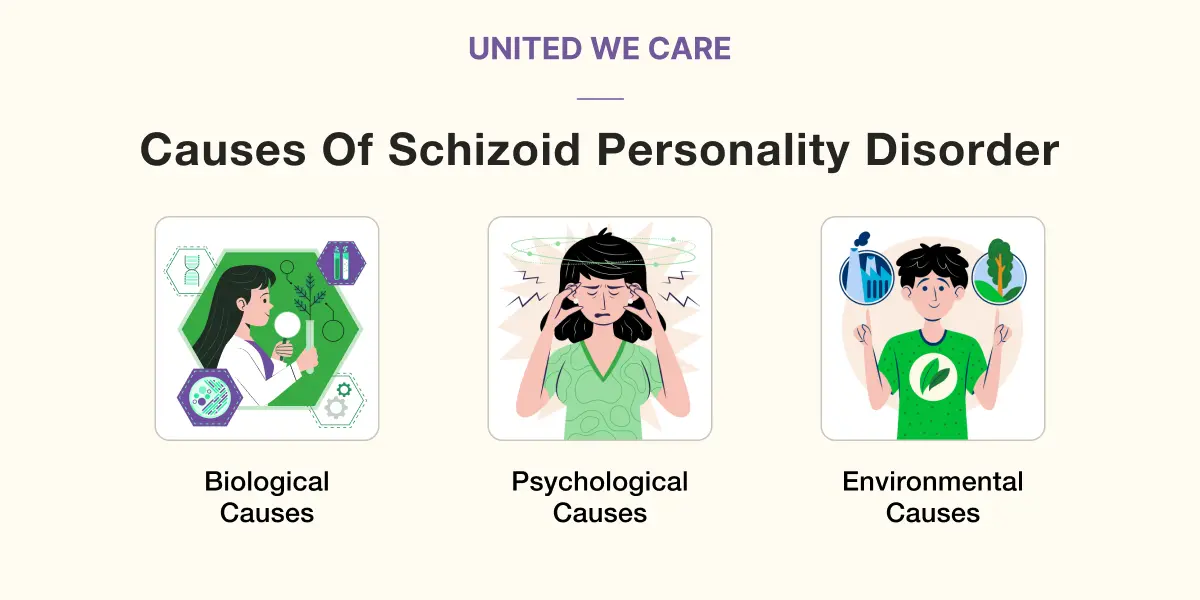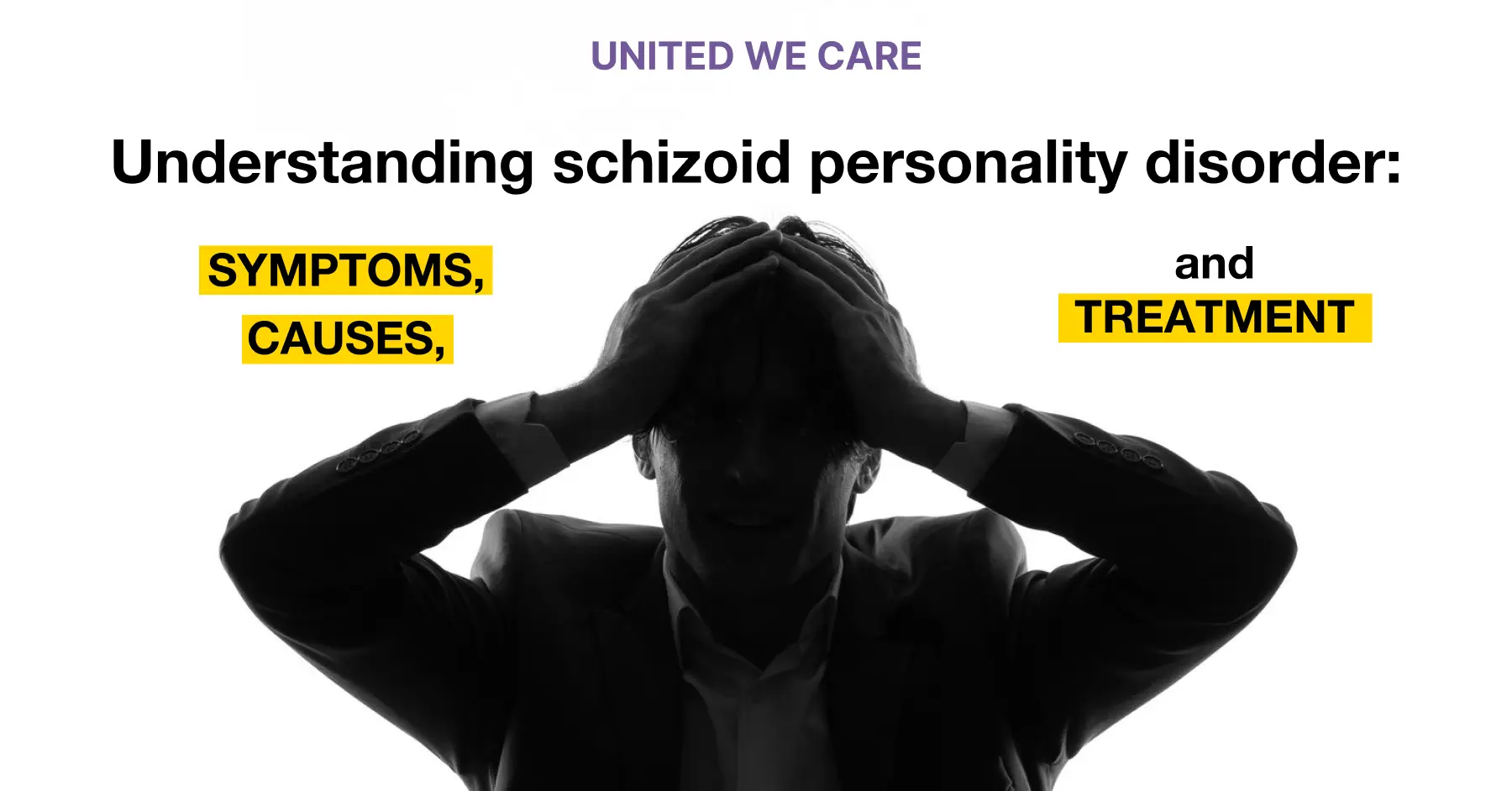Introduction
Essentially, everyone experiences periods of social isolation and difficulty in emotional expression. This can happen due to a tragic incident or difficult situation. However, in some instances, individuals develop peculiar characteristics that affect their ability to express emotions and socialize. These characteristics are persistent and become a part of your personality. People with schizoid personality disorder face some hurdles in making close relationships.
Henceforth, personality disorders develop. Personality disorders are a subtype of mental disorders classified under psychiatric illnesses. In a personality disorder, you develop symptoms and patterns that influence your ability to react to yourself and others. Schizoid personality disorder is one such personality disorder. Let’s try understanding schizoid personality disorder in detail.
Symptoms Of Schizoid Personality Disorder
As a result of the chronic nature of personality disorder, people with schizoid personality disorder have difficulty forming close relationships. Instead, they struggle with forming interpersonal relationships and find isolation comfortable. You will find them to be socially withdrawn and disinterested in most social activities.
Furthermore, due to their social aloofness, people with schizoid personality disorder are unable to form new friendships and associations outside of their immediate family. You struggle with intimacy of any kind and expression of emotions under this personality disorder. Below is a list of symptoms that are prominent in individuals with schizoid personality disorder:
- You have difficulty being involved in any close group, family, or other relationships.
- Intimacy of any kind is avoided and not preferred by you.
- You prefer doing things on your own and enjoy activities that can be done in solace.
- There is a lack of associating with others as friends, companions, or just for social associations.
- There is indifference associated with most pleasurable activities.
Causes Of Schizoid Personality Disorder
Owing to the lack of scientific research and evidence, it is difficult to establish the exact cause of developing schizoid personality disorder. The existing literature points towards certain biological, social, and psychological factors that lead to schizoid and other personality disorders.

Biological Causes
Firstly, you will find that schizoid personality disorder is relatively less likely to be diagnosed than other personality disorders. Within schizoid personality disorders, there’s a very high chance that it is inherited by a first-degree relative or has been genetically passed down. Also, prenatal complications can act as a risk factor for developing personality disorders.
Psychological Causes
Secondly, individuals who are found to be lonely most of their lives and have not been able to learn basic social and emotional expressions have a high risk. Because of emotionally distant parenting or a socially isolated childhood, there are more chances of you not enjoying socializing and instead preferring isolation later in life.
Environmental Causes
Finally, abusive households and traumatic childhood can lead to the development of severe emotional and psychological difficulties. Especially if, as a child, socializing was seen as unsafe or problematic, there could be a lifelong inability to develop or compensate for the same. Overall, a bad social situation can lead to pervasive social difficulties in adulthood.
Effect Of Schizoid Personality Disorder
Without a doubt, symptoms of schizoid personality disorder can lead to detrimental effects on social, interpersonal, and occupational functionality. Moreover, without management, the symptoms can last for several years and might even increase if not managed. This can lead to several detrimental effects on an individual. Let’s look at some specific effects of the disorder on the individual.
Vulnerabilities
Owing to the complexities of the symptoms and rarity of the disorder. Individuals with schizoid personality disorder can be misunderstood. They can appear cold and detached from others. Also, because of their difficulty in expressing emotion, they might be mistaken for sociopaths or loners. This can lead to difficulties in connecting to other individuals socially.
Social Isolation
As mentioned above, the detached appearance and reduced expression of emotion make socializing troublesome. People misunderstand them and further distance themselves due to odd behavior and inability to display social skills. As a person with schizoid personality disorder, this further fuels your symptoms to not engage in social activities.
Treatment Of Schizoid Personality Disorder
Particularly, schizoid personality disorder presents several challenges in treatment-seeking and longevity of the treatment. Owing to the heightened tendency of the individual to self-isolate and avoid communication, seeking professional help does not appear helpful. Additionally, you will not want to open up in therapy or see the whole purpose of building motivation as futile due to the personality disorder.
Despite these challenges, medications associated with similar personality disorders are helpful. The medication can help in reducing the symptoms and help act as a protective factor for associated conditions such as depression. Unfortunately, there are no direct medications available for schizoid personality disorder, and psychotherapy as well as social support are considered better interventions.
Psychotherapy has been found to help provide a space for increasing socio-emotional skills. It provides a non-judgemental space for the individual to process the challenges of isolation and detachment. However, because of the symptoms, individuals with schizoid personality disorder are more likely to drop out of therapy in between than others.
Living With People Of Schizoid Personality Disorder
Above all, a close friend or relative of a person with schizoid personality disorder can encounter several challenges. Not only will it be difficult for you to ensure that they are okay, but due to their aloofness, even basic communication can seem challenging. Furthermore, the restricted comfort with others can have a detrimental impact on your social life if you live in close quarters. Below are some of the ways that you can address the hurdles that come with being around a person with schizoid personality disorder.
- Consider psychotherapy or other professional help to manage symptoms and better understand the care required from the end for the patient.
- You can accompany the patient in participating in support groups or social groups with other individuals with similar concerns.
- Often, reading up on the disorder can help you better understand the symptoms and challenges of your loved one.
- Remember to take care of yourself and know that your efforts are not in vain. Just because the patient might not be able to express it doesn’t mean they don’t appreciate your presence and support.
Conclusion
Overall, schizoid personality disorder is one of the rarest forms of personality disorder. If you have a schizoid personality disorder, you will have difficulty socializing and connecting with others. Several biological, psychological, and environmental causes can lead to the development of this disorder. Even though direct treatment isn’t available, medications and psychotherapy can help in the management of the symptoms in totality. To find professionals who can help you get guidance on this and other mental health conditions, reach out to United We Care.
References
[1] K. Fariba and V. Gupta, “Schizoid Personality Disorder,” PubMed, 2020. https://www.ncbi.nlm.nih.gov/books/NBK559234/.
[2] A. L. Mulay and N. M. Cain, “Schizoid Personality Disorder,” Encyclopedia of Personality and Individual Differences, no. 978–3319–280998, pp. 1–9, 2017, doi: https://doi.org/10.1007/978-3-319-28099-8_626-1.
[3] T. Li, “An Overview of Schizoid Personality Disorder,” www.atlantis-press.com, Dec. 24, 2021. https://www.atlantis-press.com/proceedings/ichess-21/125967236.










